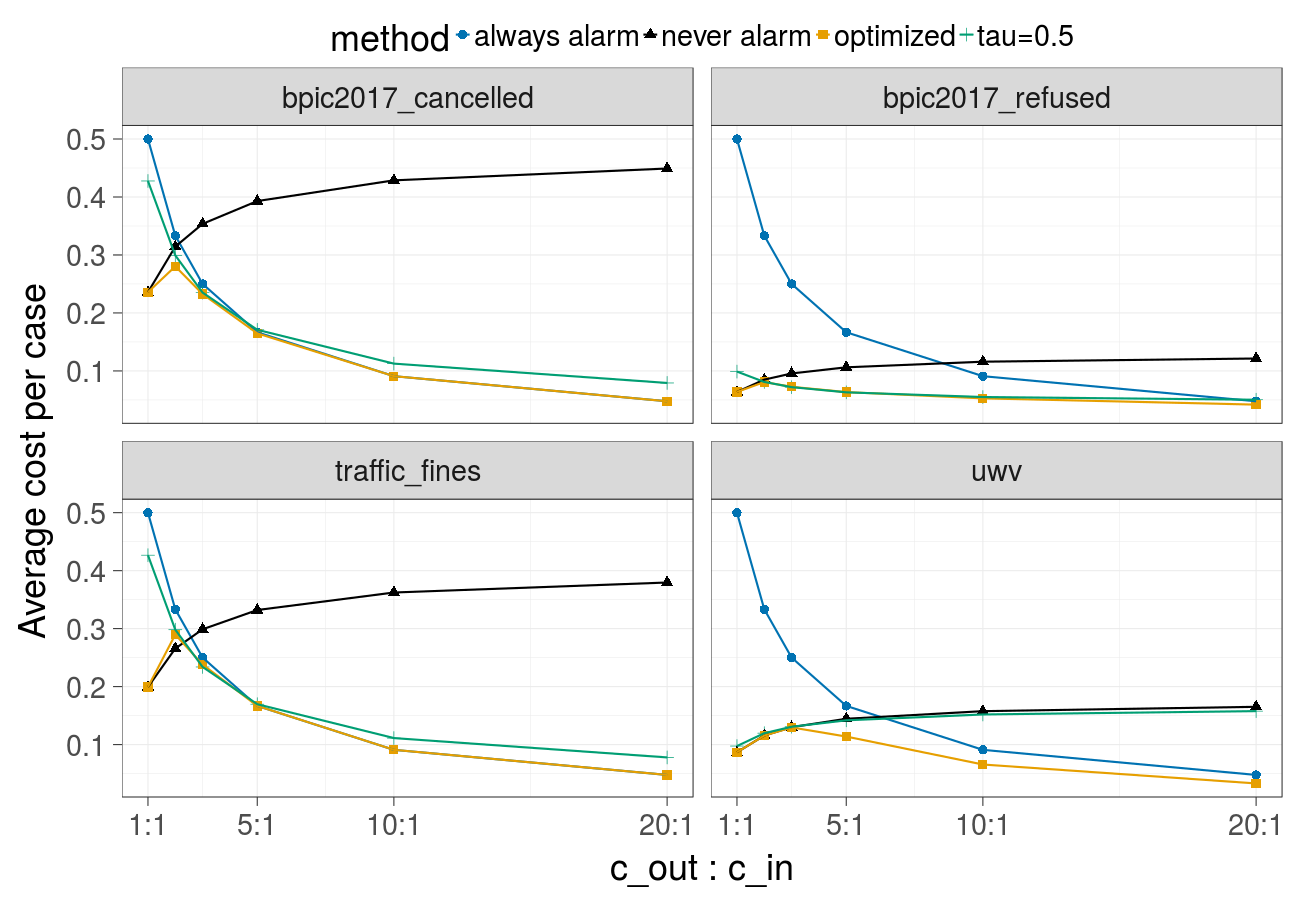Alarm-Based Prescriptive Process Monitoring
Predictive process monitoring is concerned with the analysis of events produced during the execution of a process in order to predict the future state of ongoing cases thereof. Existing techniques in this field are able to predict, at each step of a case, the likelihood that the case will end up in an undesired outcome. These techniques, however, do not take into account what process workers may do with the generated predictions in order to decrease the likelihood of undesired outcomes. This paper proposes a framework for prescriptive process monitoring, which extends predictive process monitoring approaches with the concepts of alarms, interventions, compensations, and mitigation effects. The framework incorporates a parameterized cost model to assess the cost-benefit tradeoffs of applying prescriptive process monitoring in a given setting. The paper also outlines an approach to optimize the generation of alarms given a dataset and a set of cost model parameters. The proposed approach is empirically evaluated using a range of real-life event logs.
PDF Abstract
